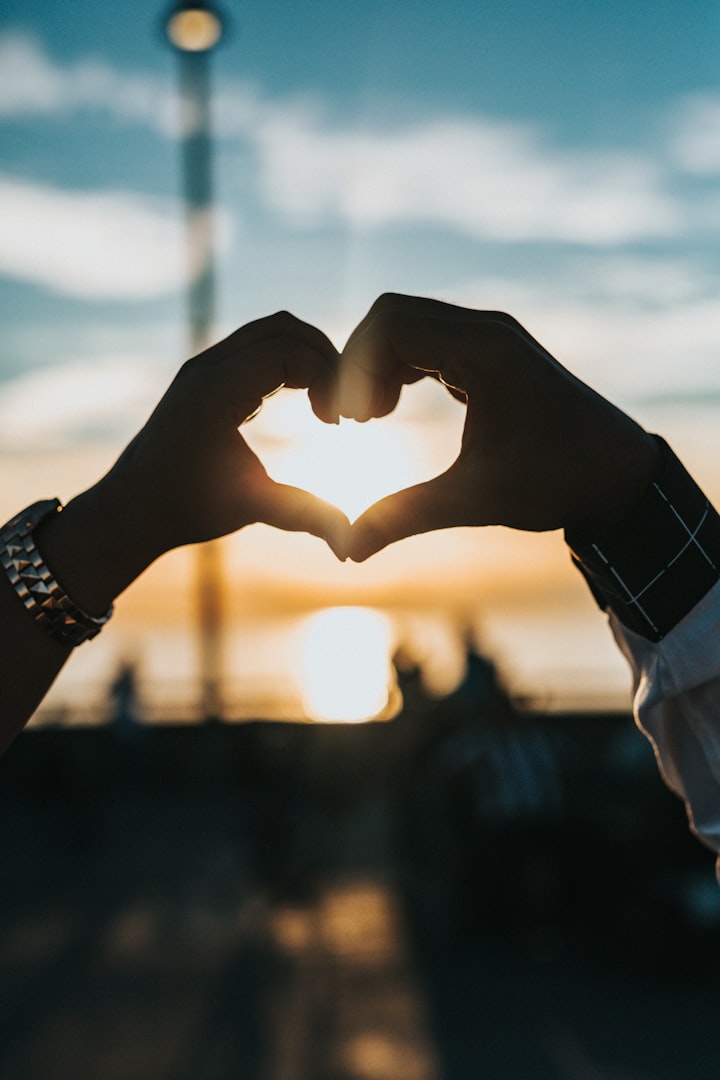Star-Crossed Lovers
What happens when media glorifies unhealthy relationships?

Why do we see so many comparisons of modern day romances to Romeo and Juliet? The famous relationship, in arguably Shakespeare’s most well-known play, was a hurricane, leaving a trail of destruction in its path. After the young fools became romantically involved, Verona was riddled with street duels between the Montagues and Capulets, while Romeo and Juliet ultimately commit a double suicide in the name of “love.” Why would we use Shakespeare’s tragedy as a model to frame our relationships after? Perhaps our society is obsessed with glorifying unhealthy relationships.
American singer/songwriter Halsey was one of many to borrow the concept of the star-crossed lovers. The famous pop star released her sophomore album, hopeless fountain kingdom, on June 2, 2017. She claimed she drew inspiration from Romeo and Juliet, along with a real-life strenuous relationship, to produce numerous of the songs on the album. The first track on the record is actually called “The Prologue,” where Halsey recites the prologue from Romeo and Juliet before diving into the rest of the album. In various interviews about hopeless fountain kingdom, Halsey admits that she loved the Romeo and Juliet dynamic so much because she felt like she was living it: “I’m going through this relationship where I feel like a version of myself—and a version of himself—are dying for the sake of wanting to make our love work.”
I, too, consumed the poisonous narrative the Shakespeare tragedy fed me. I spent the last half of high school trying to untangle myself from the web my now ex-lover had me trapped in. I suffered from the Romeo and Juliet effect: When your friends and family disapprove of your current partner, you’re even more determined to make the relationship work. When my parents would become enraged at the fact that he left me locked outside of his house, stranded in the cold, for almost 30 minutes, I brushed the matter off as my fault. When my best friend comforted me after having a panic attack while my partner gave me the silent treatment, I chalked it up to a miscommunication. When I sat crying in a friend’s car on a night I won an award, because my boyfriend claimed he couldn’t come due to his jealousy of my popularity with the school, I swore he just had a bad night. When another guy texted him, threatening to hurt him if he ever tried to run over my foot with his truck again, I begged the boy to let me work it out with my partner instead. I was stuck in a limbo of apologies that weren’t needed and defenses that weren’t enough.
I found comfort in Halsey’s hopeless fountain kingdom, specifically a song called “100 Letters.” Her sorrowful lyrics reminded me too much of the position I was stuck in at the time. She sang of a lover who only loved her during sex, who degraded her and isolated her from others, who tried to make it up with love letters to her, and the lyric that I connected with the most: “I have spent too many nights on dirty bathroom floors/To find some peace and quiet right behind the wooden door.” The toxic relationship she sang of, throughout the entire album, mirrored mine more than I was comfortable with. Even though the signs were there, I continued to be intertwined with my abusive lover because I thought the knife he kept twisting into my back was normal.
It turns out I wasn’t the only one. One in three adolescents in the United States is a victim of physical, sexual, verbal, and/or emotional abuse from a dating partner. Abusive behavior between teenage girls and guys is common these days, and even when victims recognize the abuse, it is hard for them to escape. Only 33 percent of teens who were in an unhealthy relationship ever told anyone about the abuse, and the victims often are belittled into thinking they don’t deserve anything better than how their partner treats them. The consequences of going through an unhealthy relationship in youth cause even more hurt for the individual. Victims are put at higher risk for substance abuse, eating disorders, and further domestic abuse, and half of youth who have been victims of both dating violence and rape have attempted suicide. Abusive partners shatter the light inside of adolescents, leaving them to maneuver around the broken glass for the rest of their lives.
So, why has abusive behavior become the norm in modern young romances? Surely the destructive nature of Romeo and Juliet doesn’t have that strong of an influence, right? Unfortunately, examples of unhealthy relationships are littered throughout history and pop culture like rubble after a tornado. The Ancient Greeks entertained themselves with stories of Hades forcing Persephone to reside in the underworld with him, only occasionally allowing visits to her loved ones, Pygmalion sculpting himself the “perfect” wife, and Zeus constantly cheating on Hera only for Hera to be mad at the women he cheated with. These romanticized myths traveled from Ancient Greece to modern day classrooms, exposing the poison to impressionable youth. History also shows its guilty pleasure for unhealthy relationships in the Bible. In the story of Hosea and Gomer, Hosea is told to forgive Gomer and take her back after she was unfaithful to him and got involved with slave traders. These are scriptures that many young Christians look up to and model their lives after. Romeo and Juliet travels in different shoes throughout history, with a Midas touch of toxicity.
But what has more of a grip on adolescents than Greek myths and Bible lessons? Pop culture. Television. Novels. Comics. The slew of unhealthy, extremely abusive couples being idolized by dedicated fans is overwhelming. Edward Cullen’s stalker tendencies in Twilight. Christian Grey’s manipulative tactics to woe Anastasia Steele into unsafe BDSM in the Fifty Shades trilogy. The Joker constantly putting Harley Quinn down and hitting her when she wouldn’t do what he wanted. Rachel and Ross’s on again/off again with constant manipulation from both parties in Friends. Gatsby’s persistence of Daisy, a married woman, in The Great Gatsby. Sandy completely changing herself for Danny Zuko at the end of Grease. Ron’s constant controlling and hurtful actions towards Hermione due to insecure jealousy in the Harry Potter series. Han Solo forcing a kiss onto Leia after she makes it clear she is uncomfortable in Star Wars. Ezra, a teacher in a power position, using sex with his student Aria to get inspiration for his novel in Pretty Little Liars. The Beast kidnapping Belle and trying to force her to love him in Beauty and the Beast. Even in the new hit show Stranger Things, Jonathan Byers photographs his crush Nancy Wheeler through a window while she takes her clothes off. Music about unhealthy relationships is another abundant example. Extremely popular songs like i hate u, i love u by gnash and Bleeding Love by Leona Lewis tell stories of victims wanting to stay in abusive relationships. I compiled a list of over 130 songs just from my music library that sang of relationships gone very wrong. These are the relationships teens see on their TV screens. Read from their favorite books. Listen to their favorite artists sing bitter-sweetly of. The one in three statistic began to make more and more sense as I compiled the grocery list of influential relationships that me and many others adored. I came to realize how their poison seeped into our brains, taking shape in the form of our relationships in our own lives.
I sit here, writing this from a very good place in my life. I’m rapidly approaching adulthood with a clearer mind that can pick apart these toxic influences before I replicate them. I escaped my own abusive relationship and found new strength within myself when he begged me to stay with him and I refused. I have my arm around someone who loves me and treats me with kindness as I type out these words. I found the antidote to the poison pop culture and history fed me. But I worry about others who are wading into the dating pool, with only horrible examples to base their relationships off of. They are set up to suffocate in the water and drown. When will we as a society learn to value a Viola and Orsino over a Romeo and Juliet? Like Halsey drowns the hundreds of love letters her abuser wrote her in a washing machine, we too must cast our idolized toxic relationships out to sea, to sink in the roaring waves.
About the Creator
Gabby Cushman
I am a writing student at Michigan State University, and creative writing has always been my passion. I mainly write poetry and fiction, but dabble in creative nonfiction and essays as well. Thank you for checking out my work!






Comments
There are no comments for this story
Be the first to respond and start the conversation.